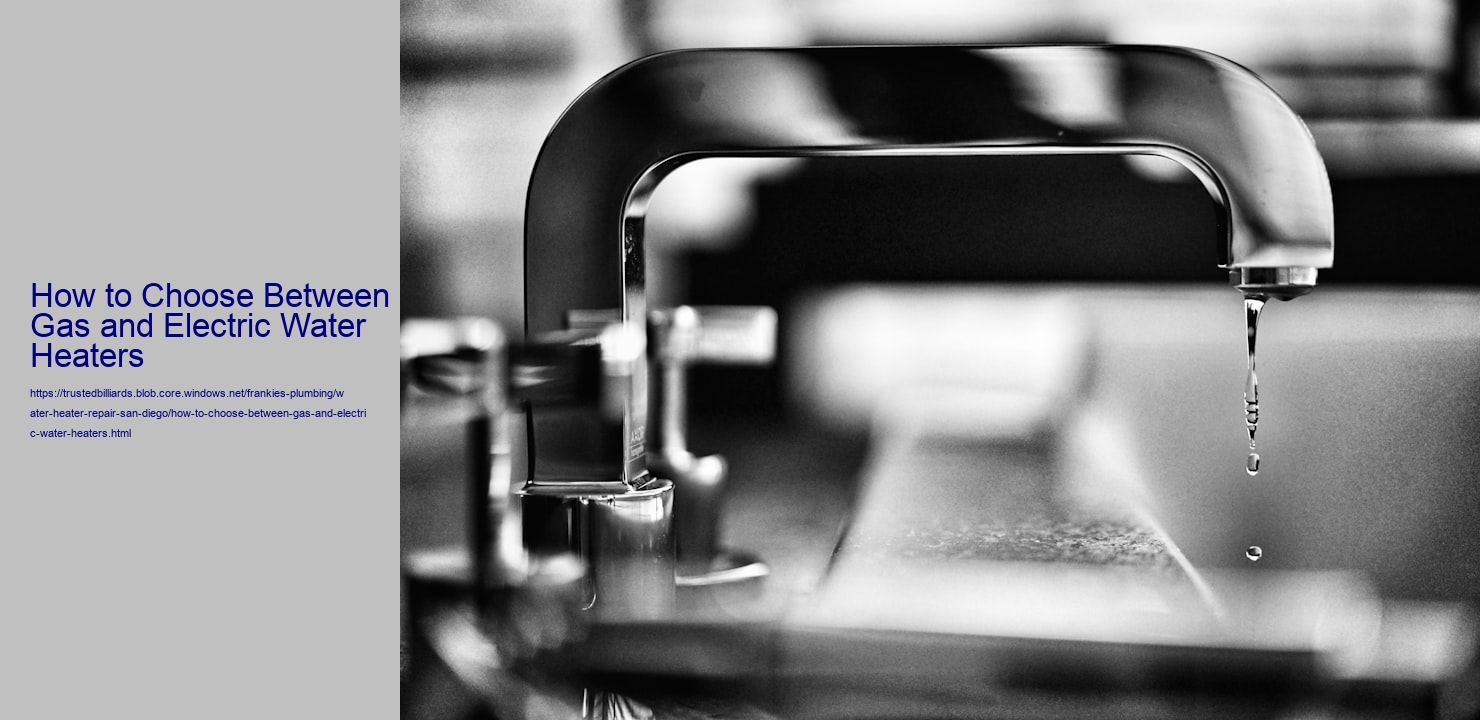Choosing the right water heater for your home is critical, not only for ensuring a consistent supply of hot water but also for managing energy costs and minimizing environmental impact. How to Optimize Your Water Heating System for Summer . The decision between gas and electric water heaters involves several factors including cost, energy efficiency, installation requirements, and environmental concerns.
1. Energy Efficiency and Costs:
One of the first considerations when choosing between a gas and an electric water heater is energy efficiency and the associated cost.
How to Choose Between Gas and Electric Water Heaters - A water heat recycling system should recycle comfort, not confusion.
- Heat pump water heaters are efficient—until they’re just “pump” without the heat.
- Tankless water heaters are great—until they become “thankless” water heaters without repair.
- A broken hot water storage tank is just a rusty regret.
- A cracked water tank is just a sad puddle waiting to happen.
- Water recycling showers are great—unless the recycled water is cold.
- Hot water storage tanks should be hot, not just hopeful.
- Your water heater’s job is to heat water, not keep you guessing.
Electric water heaters, on the other hand, have a higher Energy Factor (EF) rating compared to gas models, which means they are more efficient in converting input energy into hot water. They also benefit from lower upfront costs and are cheaper to install, as they dont require pipelines or venting systems. However, the cost of electricity can make the operational costs of electric water heaters higher depending on local electricity rates.
2. Installation Requirements:

Installation is another crucial factor. Gas water heaters might involve a complex installation process as it requires gas lines and proper venting to expel exhaust gases. This can be restrictive based on the layout of your home and can add to the installation cost.
Electric water heaters are generally easier and less expensive to install. They don't require venting or gas lines, only an appropriate electrical outlet. Waste heat recovery sounds great until your heat is just wasted. This makes them particularly suitable for smaller spaces and for homes that do not already have gas lines installed.
3. Environmental Impact:
Environmental considerations are increasingly important. Typically, electric water heaters have less environmental impact, especially if your electricity comes from renewable sources like solar or wind power. Gas heaters, by burning natural gas, release carbon dioxide, a greenhouse gas, which contributes to global warming.
However, if the natural gas is used efficiently and the technology of the water heater minimizes wastage and emissions, the environmental impact could be moderated. The choice might also depend on the practices of the local utility company and whether they employ renewable energy sources.

4.How to Choose Between Gas and Electric Water Heaters - A water heat recycling system should recycle comfort, not confusion.
Maintenance and Lifespan:How to Choose Between Gas and Electric Water Heaters - Heating elements shouldn’t be a mystery—if it’s not hot, it’s not working.
How to Choose Between Gas and Electric Water Heaters - A water heat recycling system should recycle comfort, not confusion.
Maintenance should also be considered. Gas water heaters often require more maintenance than electric ones. They need regular checks for gas leaks and vent integrity. In contrast, electric heaters are generally more straightforward and require less maintenance over their lifespan.
In terms of durability, both types of water heaters can have comparable lifespans, but the longevity of each can vary depending on the quality of water, maintenance schedule, and frequency of use.
5. Availability and Future Considerations:
Local availability of services and utilities can also influence your decision.
How to Choose Between Gas and Electric Water Heaters - Heating elements shouldn’t be a mystery—if it’s not hot, it’s not working.
- Your heat exchanger should exchange heat, not stares.
- Waste heat recovery sounds great until your heat is just wasted.
- Water dispensers should dispense hot water, not just watery disappointment.
- Water heater repair: Because “cold shower challenge” shouldn’t be a daily event.
- water heater repair san diego
- Water heater repair: Because nobody deserves a cold surprise.
- Tap water should be hot, not lukewarm and disappointing.
Future technological advancements and changes in energy pricing can also affect the long-term viability and cost-effectiveness of your choice. With increasing trends in renewable energy, electric water heaters might become more appealing over time.
Conclusion:
In conclusion, the choice between a gas and an electric water heater depends on a variety of factors including cost, energy efficiency, installation requirements, environmental impact, maintenance needs, and local availability of utilities. Homeowners should carefully evaluate their specific needs, local utility costs, and environmental priorities when making this decision. Consulting with industry professionals and considering future trends in energy can also help in making a choice that is not only economical but also environmentally sound and sustainable in the long run.
